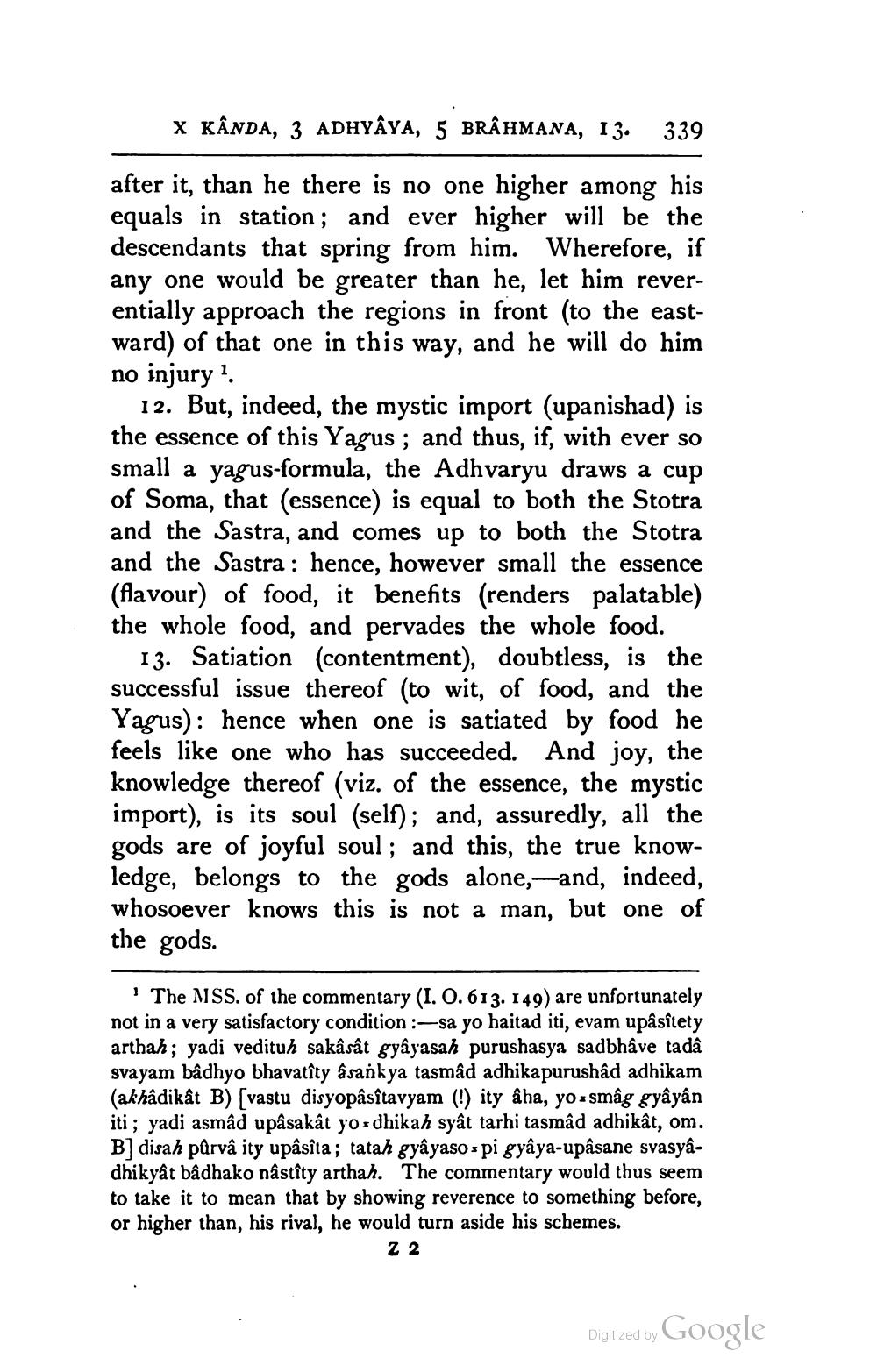________________
X KÂNDA, 3 ADHYÂYA, 5 BRÂHMANA, 13.
339
after it, than he there is no one higher among his equals in station; and ever higher will be the descendants that spring from him. Wherefore, if any one would be greater than he, let him reverentially approach the regions in front (to the eastward) of that one in this way, and he will do him no injury?.
12. But, indeed, the mystic import (upanishad) is the essence of this Yagus ; and thus, if, with ever so small a yagus-formula, the Adhvaryu draws a cup of Soma, that (essence) is equal to both the Stotra and the Sastra, and comes up to both the Stotra and the Sastra: hence, however small the essence (flavour) of food, it benefits (renders palatable) the whole food, and pervades the whole food.
13. Satiation (contentment), doubtless, is the successful issue thereof (to wit, of food, and the Yagus): hence when one is satiated by food he feels like one who has succeeded. And joy, the knowledge thereof (viz. of the essence, the mystic import), is its soul (self); and, assuredly, all the gods are of joyful soul; and this, the true knowledge, belongs to the gods alone,--and, indeed, whosoever knows this is not a man, but one of the gods.
The NSS. of the commentary (I. O.613. 149) are unfortunately not in a very satisfactory condition :-sa yo haitad iti, evam upâsîtety arthah; yadi vedituh sakâsât gyayasah purushasya sadbhâve tada svayam bâdhyo bhavatîty a sankya tasmâd adhikapurushâd adhikam (akhâdikất B) [vastu disyopâsîtavyam (!) ity âha, yossmag gyâyân iti; yadi asmâd upâsakât yosdhikah syât tarhi tasmâd adhikât, om. B] disah pûrvâ ity upâsîta ; tatah gyâyaso s pi gyâya-upâsane svasyâdhikyât bâdhako nâstîty arthah. The commentary would thus seem to take it to mean that by showing reverence to something before, or higher than, his rival, he would turn aside his schemes.
Z 2
Digilized by Google




